SUMMARY
VENOM: Very mild - no known danger
PREVALENCE: Common where found
ACTIVE PERIOD: Mostly active at night
KEY ID FEATURES: Dark grey with yellow bands near the neck that fade as the snake matures
BEHAVIOR: Aquatic, may be found shallow muddy costal mangrove water, almost always found swiming and forraging
SIZE: Medium - 1m
QUICK ASSESSMENT 0-10
GALLERY
IMPORTANT: Many snakes have significant variance in coloration and pattern even within the same species. There can also be extreme differences in appearance from juveniles to adults so it is important to never assume you have properly identified a snake.
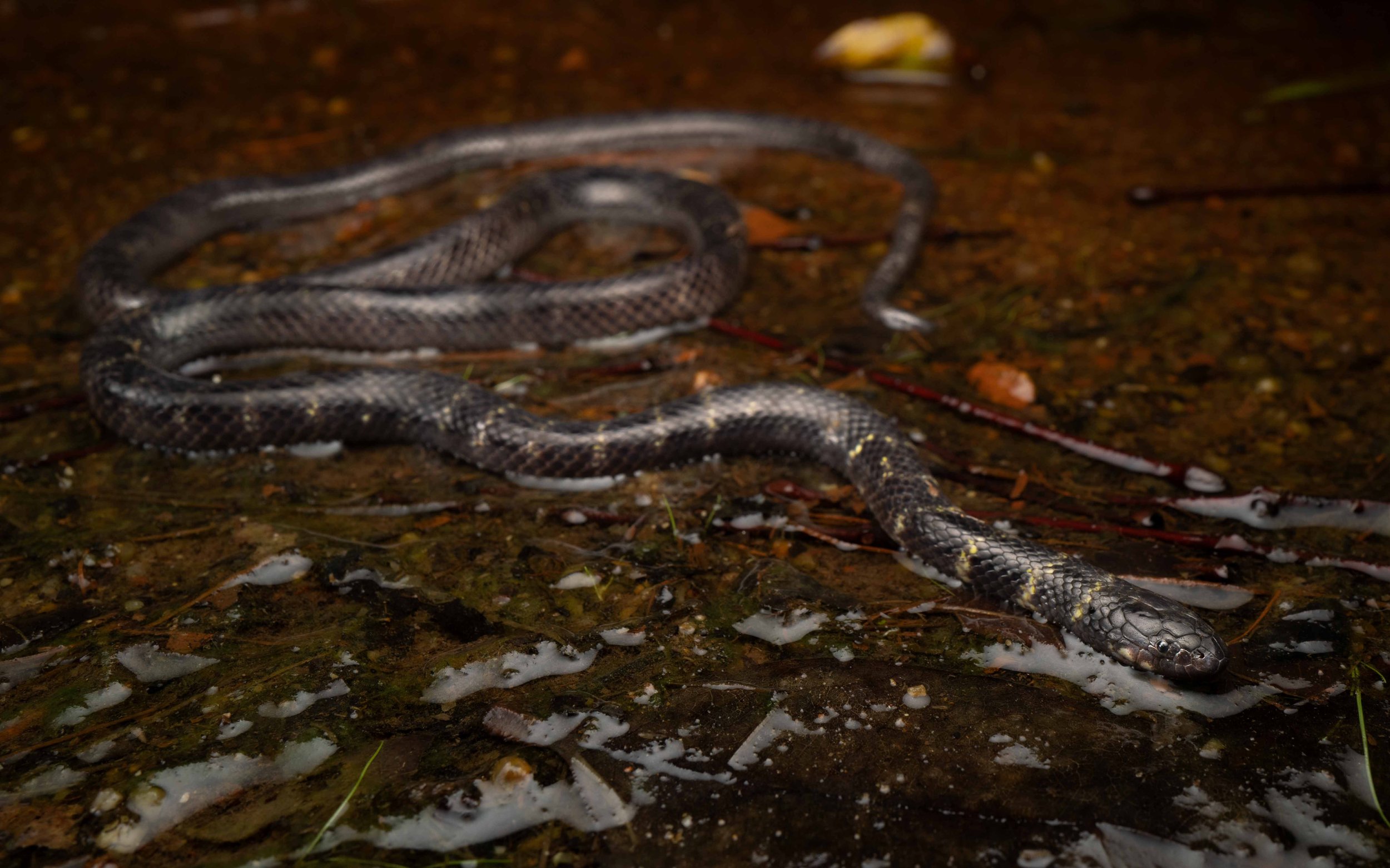
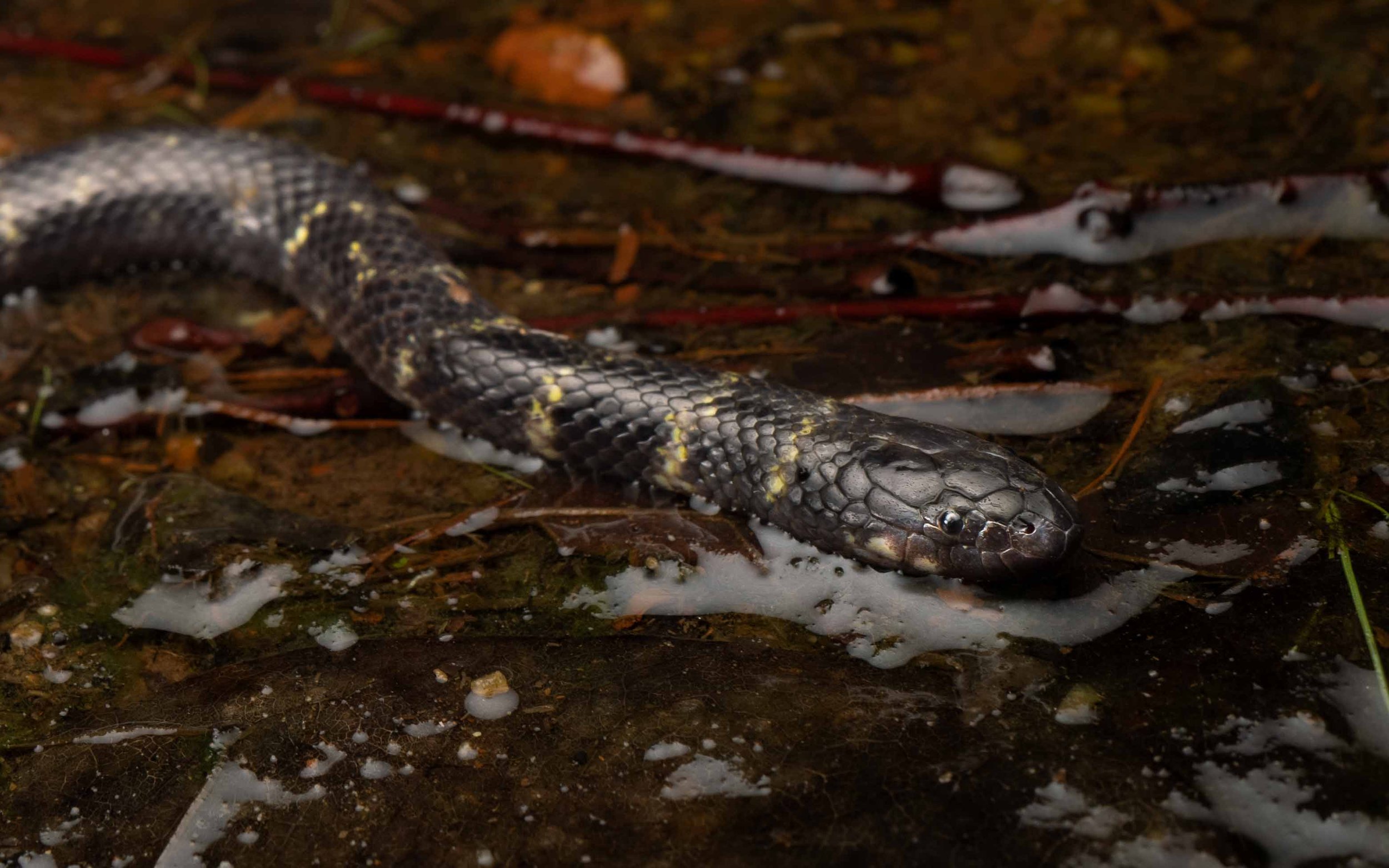
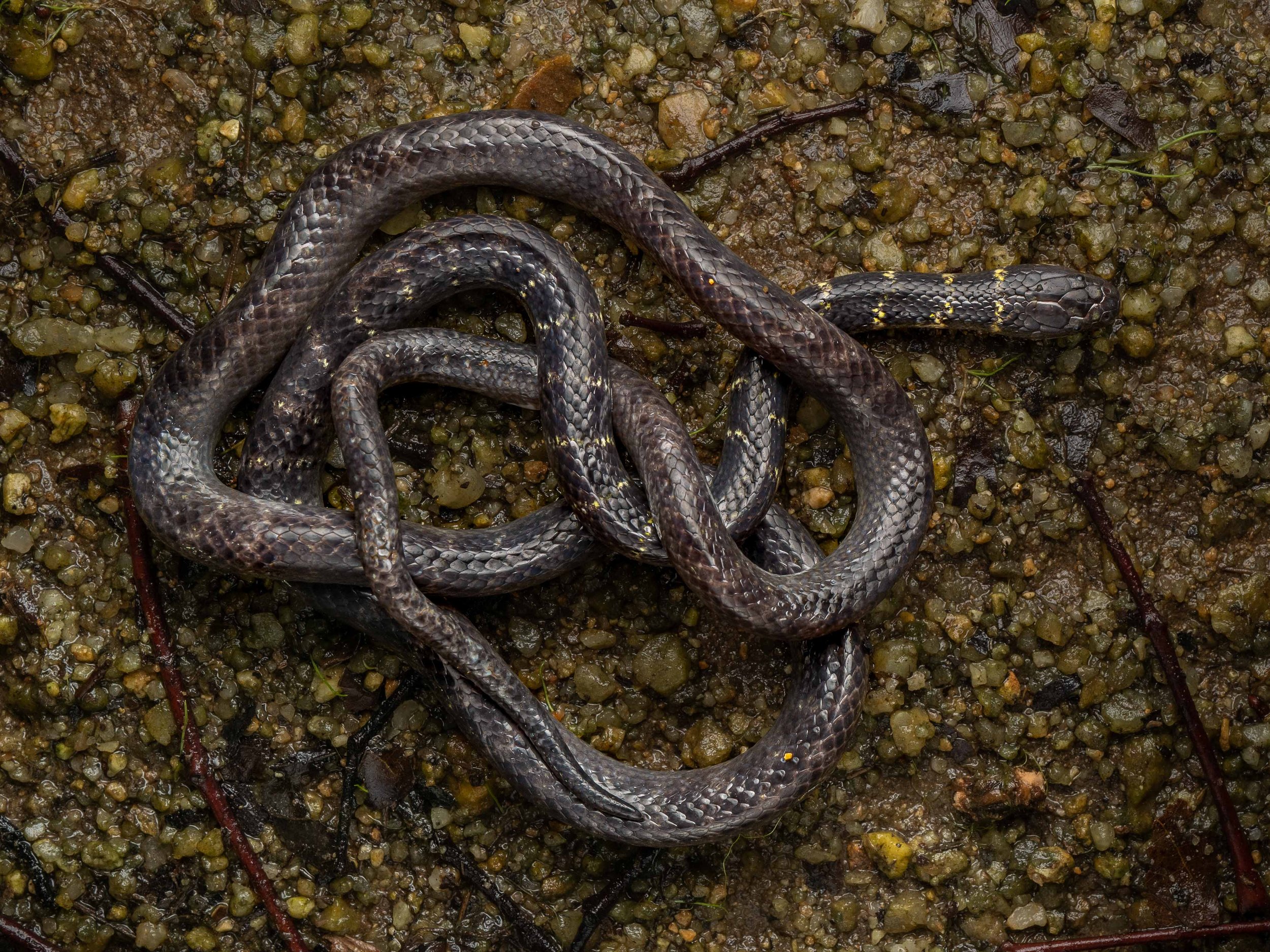
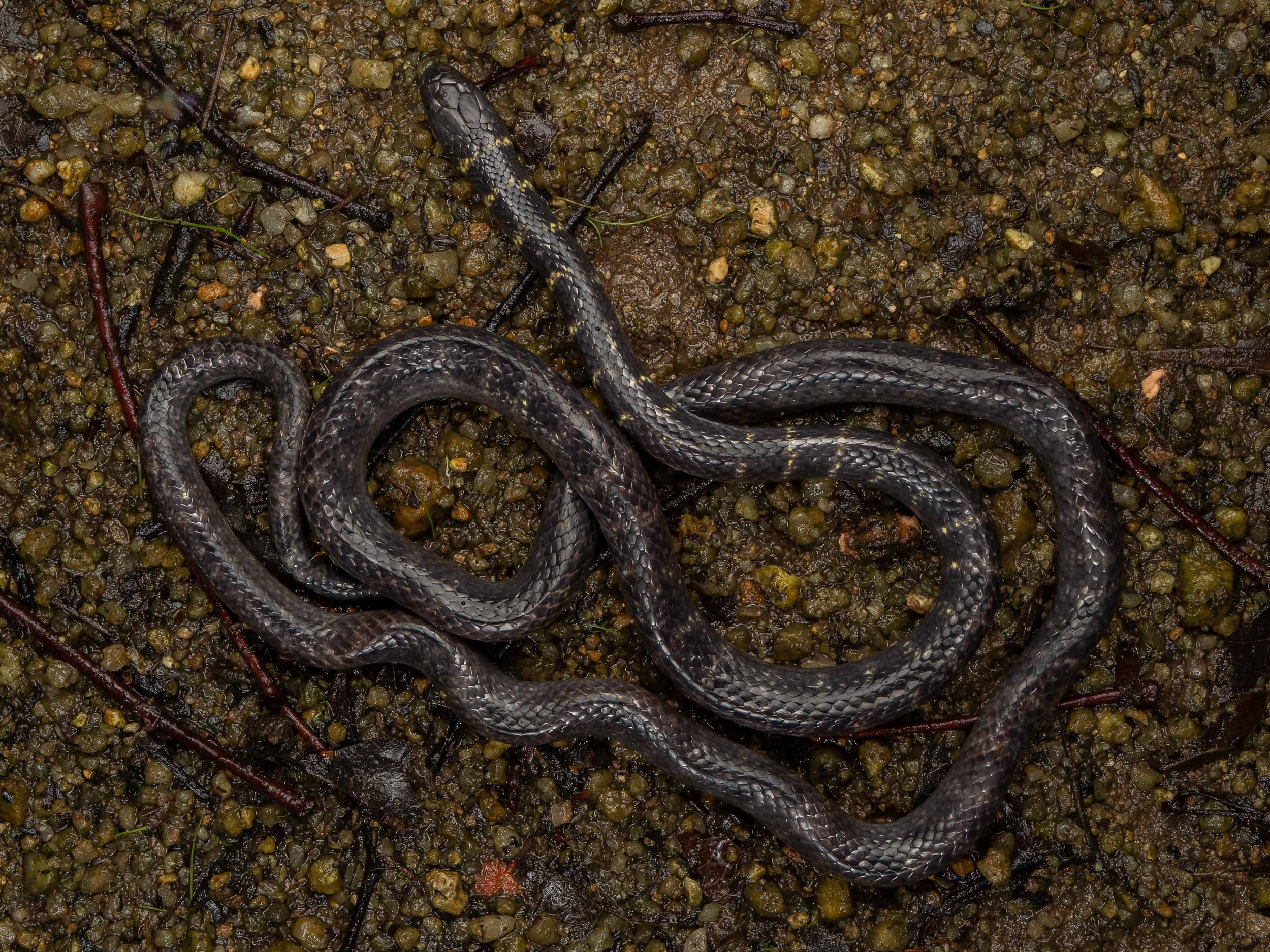
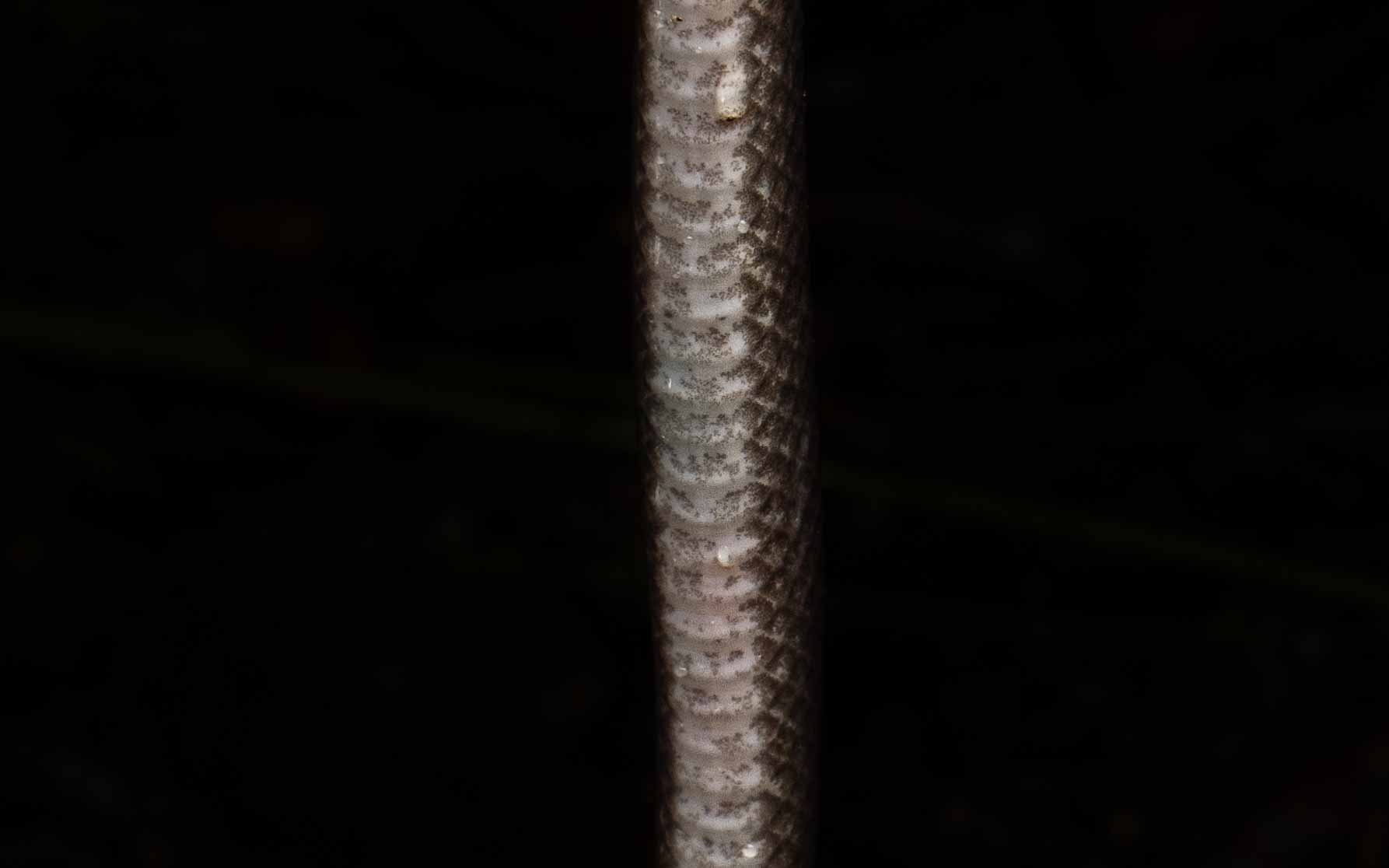
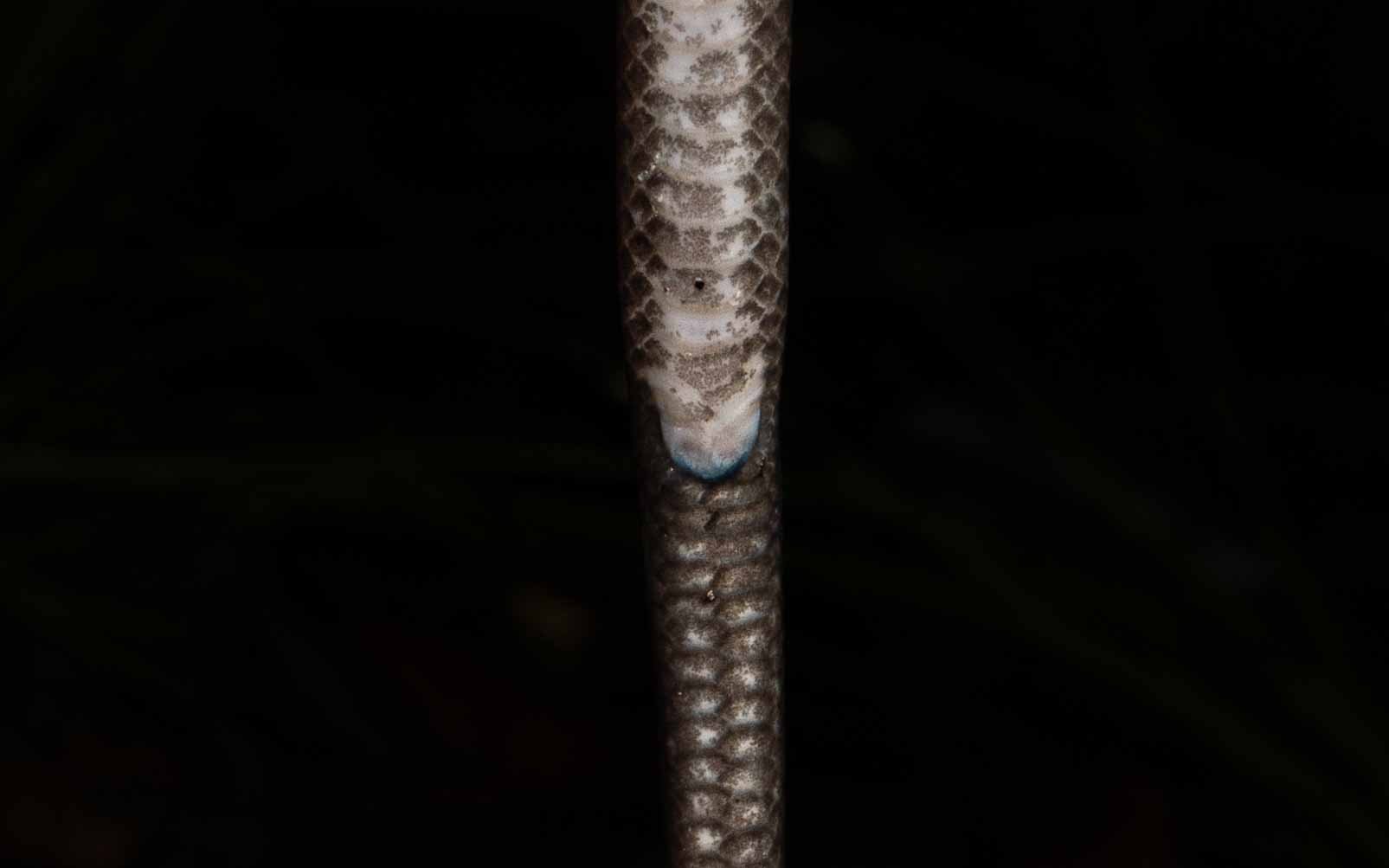
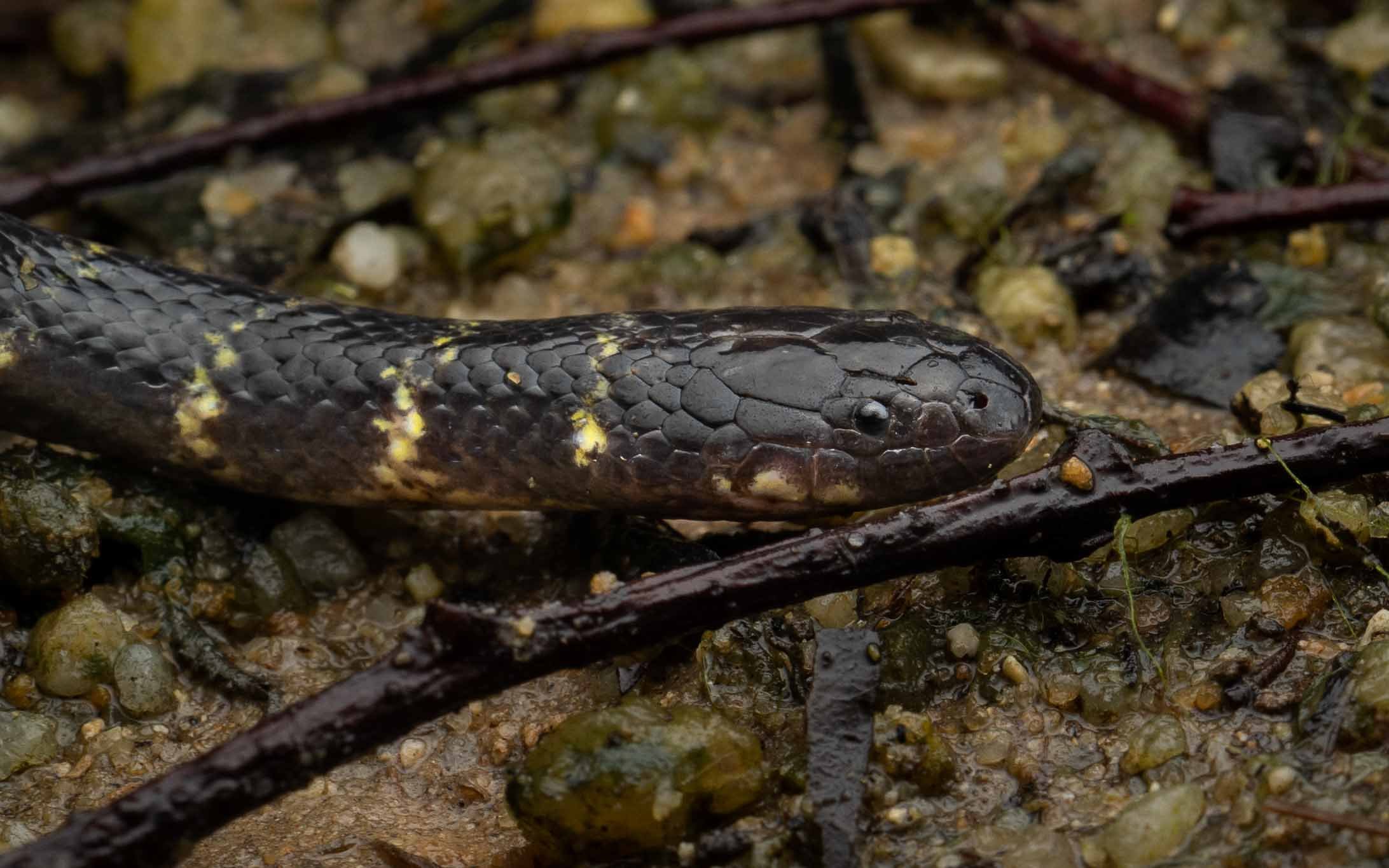
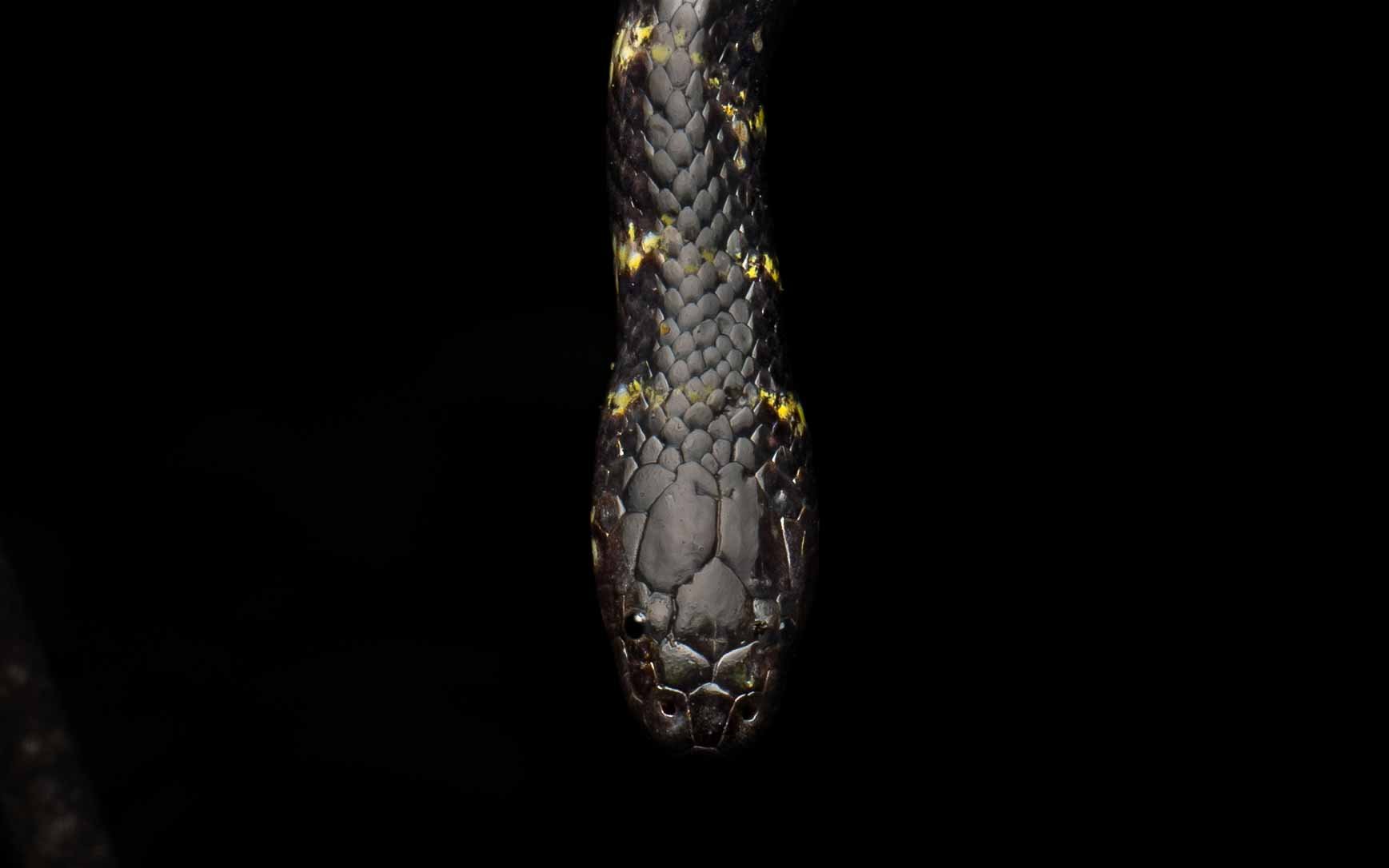
DESCRIPTION
Cantor’s water snakes are a long thin speices with relatively small heads. They are generally dark grey with yellow bands around the neck, though the bands fade with age. Some individuals can exhibit dark grey, light grey, and white blocthing on the lower half of the body when mature. Often mitaken for eels given their long thin dimensions.
BEHAVIOR
Mostly nocturnal Cantor’s water snakes come out at night to actively hunt. They are found in shallow costal mangrove mud flats, almost always underwater and will also bury into mud. They can also position motionless in wait but are normally active hunters.
HABITAT
Found exclusively in mangrove and coastal mud flats it is a less common snakes to encounter but very abundant where they exist. Due to their diet of costal aquatic prey and preference to stay under the surface of the water.
MISTAKEN IDENTITY
NO SNAKE SHOULD EVER BE HANDLED BY ANYONE BUT EXPERTS: Can be mistaken for some other aquatic animals like eels but generally not confused with dangerously venomous species of snake.

